Kettering College Works to Raise Mental Health Awareness
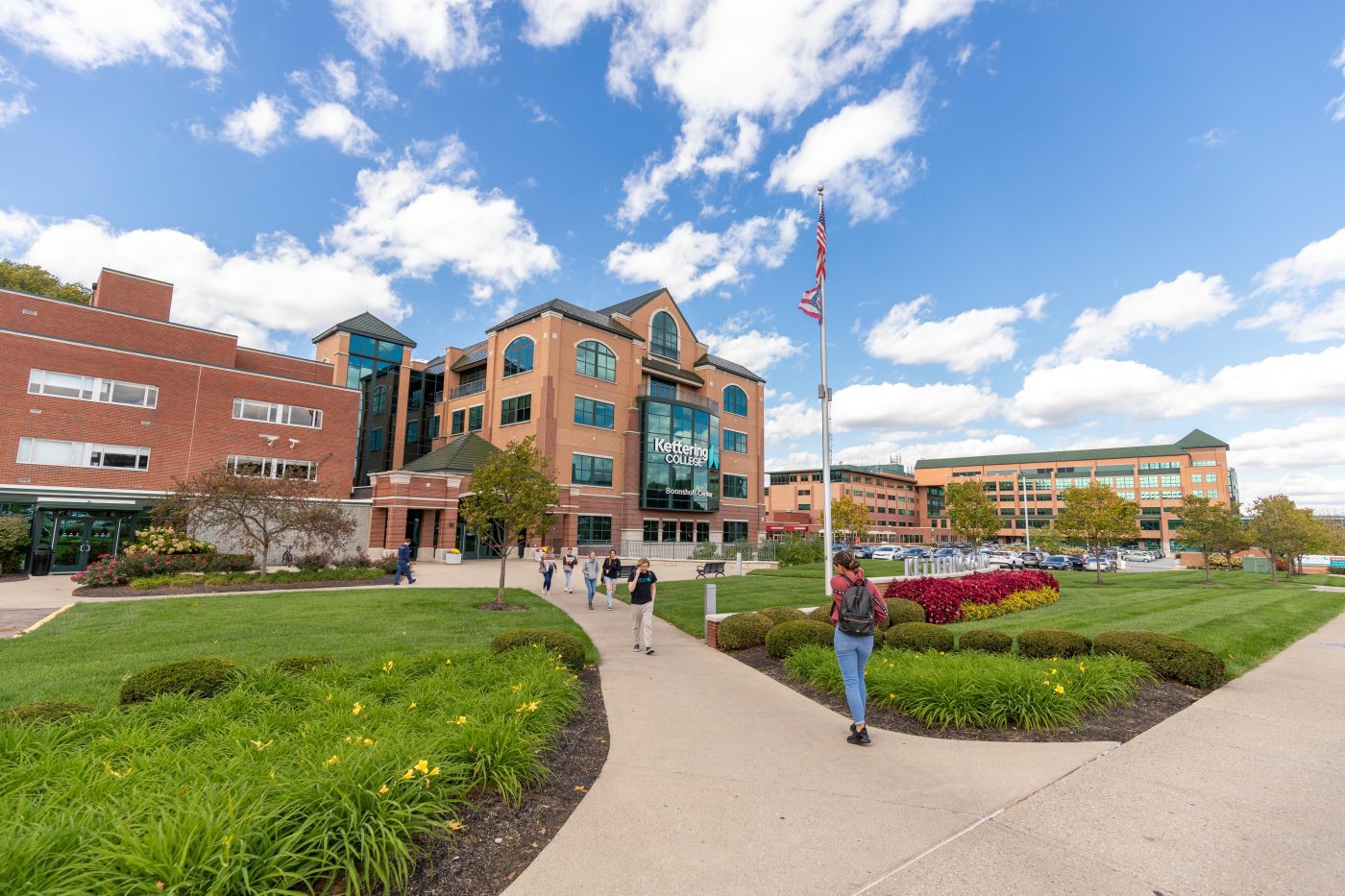
Although exciting, attending college can be a stressful time in a student’s life. Anxiety about grades and balancing a demanding schedule with life can often make students feel overwhelmed, and their mental health can be affected.
This is a common experience, but mental health remains the part of health we care for last. A recent survey from the Healthy Minds Network reports that nearly 80% of college students report needing help with mental health issues, but most students are not reaching out for it. In fact, only around 14% of them are taking advantage of mental health resources being offered by their colleges.
The reasons students often don’t seek help are perhaps due to the stigma still often attached to mental health or not understanding how important it is to overall wellness. Students might be so focused on their academic success that it takes precedence over mental health, but this tunnel-vision focus can come at a cost.
Normalizing Mental Health Assistance
Although the topic of mental health has been garnering more attention in American society, there is work to be done to turn this awareness into action where students receive help. One step Kettering College has taken is to become a member of the National Alliance on Mental Illness (NAMI) On Campus club.

Jerry Cervantes, assistant Nursing professor, reinstated Kettering College’s NAMI On Campus membership to give our students the resources they need in a way that makes mental health a part of everyday conversations. Our membership provides advocacy, education, support, and public awareness, so everyone on campus can comfortably and easily seek mental health assistance.
With our NAMI membership, Jerry notes, “When students connect with one another, they can share common experiences and support each other through the challenges that come with going to college.” He says having NAMI events helps make those connections happen and “end the stigma that makes it hard for students to talk about mental health and get the help they need.”
Virtual Care Program at Kettering College
The Virtual Care Group is a program Kettering College has been a part of for several years that offers therapy or life coaching in person or via telehealth. We have additionally received a Mental Health Emergency Grant that allows students to be reimbursed for emergency mental health treatment by completing an online application and submitting documentation of the service.
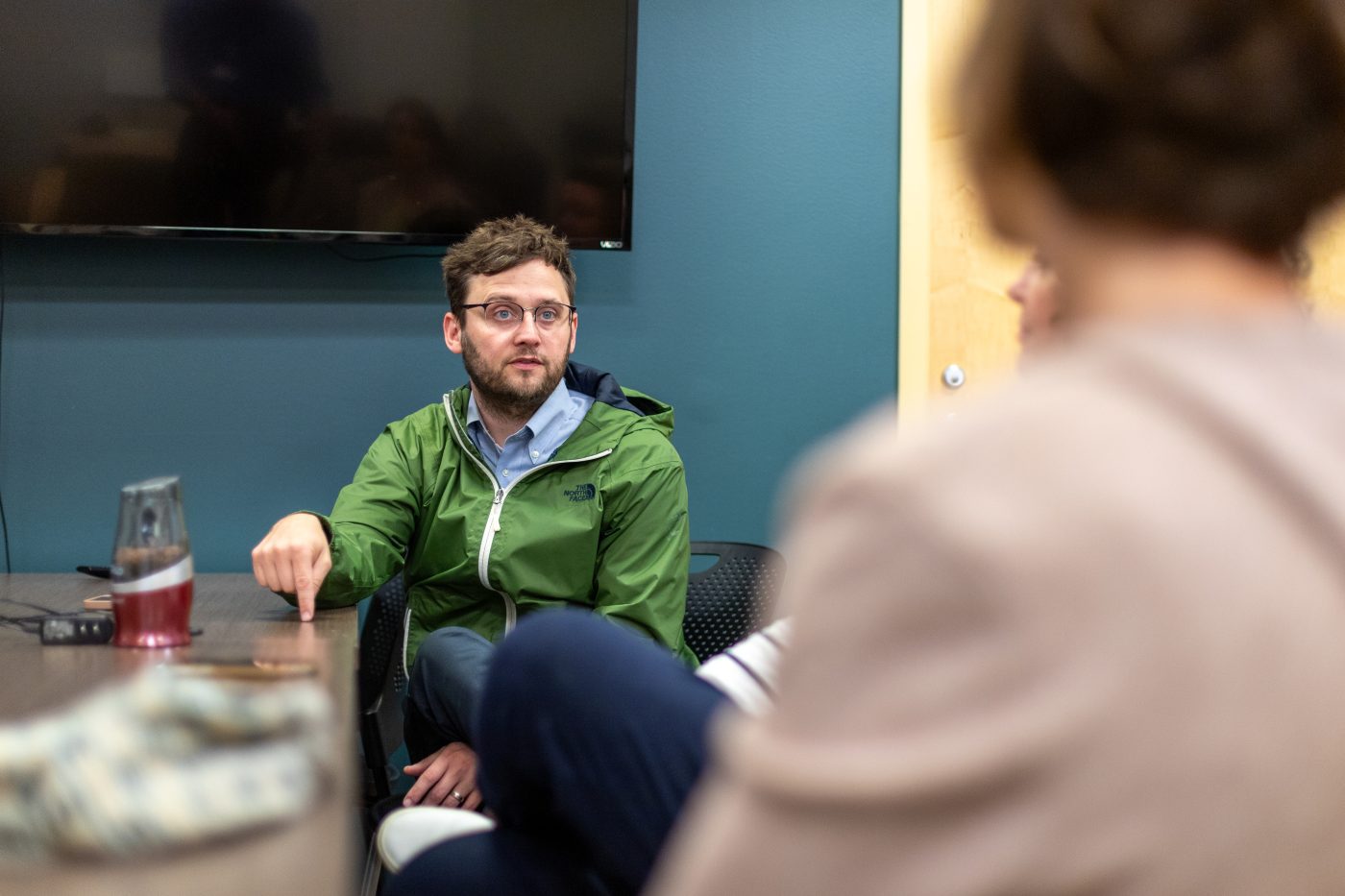
The grant is intended to alleviate financial barriers that might come with seeking mental health assistance and to start the process of including mental health as part of the holistic health landscape for students. Ben Hotelling, Student Success associate dean, says, “The grant is meant to be proactive, so we start asking students how their mental health is and if they need help paying for services.”
Ben says staff in the Student Affairs and Student Success offices talk to students daily about mental well-being. “We need to double down in the awareness because we see it in our surveys. We hear about it every day, but it’s not translating to students registering for the Virtual Care Group service we offer,” he says.
Control What You Can
Emily Cowell, director of Student Success & Disability Services, has noticed the biggest mental health factors students come to her with are stress and anxiety. She says, “Sometimes the pressure is intense.” She encourages students to examine their lives to see how they can better manage stress. She says, “I ask them things like, ‘What are your sleep habits?’ or ‘Are you taking a break from screens?’ so they are able to unplug and slow down their minds.”
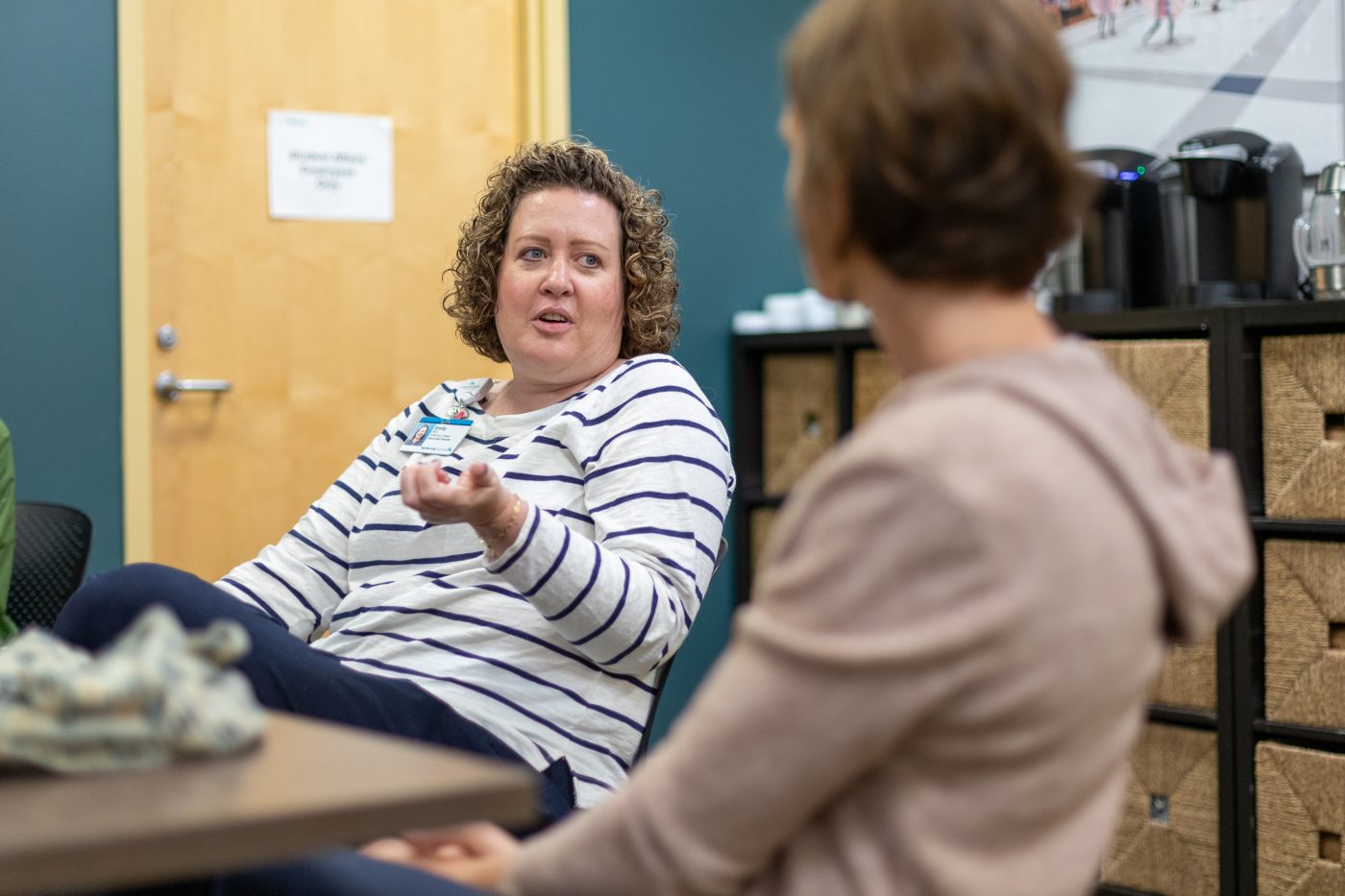
She says they also discuss their studying strategies and making sure they give themselves breaks and don’t put so much demand on themselves they can’t sustain it. She says, “When students map out their study habits, we start to create a plan, and once a plan is in place, students often feel better. They feel they have some sense of control over an otherwise overwhelming situation.”
Ben adds, “I think there’s a misconception in that if you register for 12 hours, it’s 12 hours, but I remind students to think about all the time they’ll need to spend outside of class.” Kettering College students often have several responsibilities outside of college, so Ben tells them, “Let’s not just talk about your class schedule—you can’t forget you need time to pick up your kids and make dinner and juggle this with your job.”
He notes how important it is to help students be realistic and manage their expectations to avoid more stress from taking on too much too quickly. He says, “We’re not an easy college—we pride ourselves on our academic rigor and clinical quality.” This can cause students to realize they weren’t properly prepared for the challenge. He says, “Often our students have been out of school for a while or they come straight from high school,” so there is a period of adjustment.
Spiritual Health: A Part of Mental Health
Since Kettering College is a faith-based organization, spirituality is often a part of discussions. Judith Mendoza, Spiritual Life director, says sometimes as students begin to understand or question their faith, this can cause stress. She says she helps them uncover who they are but still encourages them to register for Virtual Care since spiritual health is a strong component of mental health.
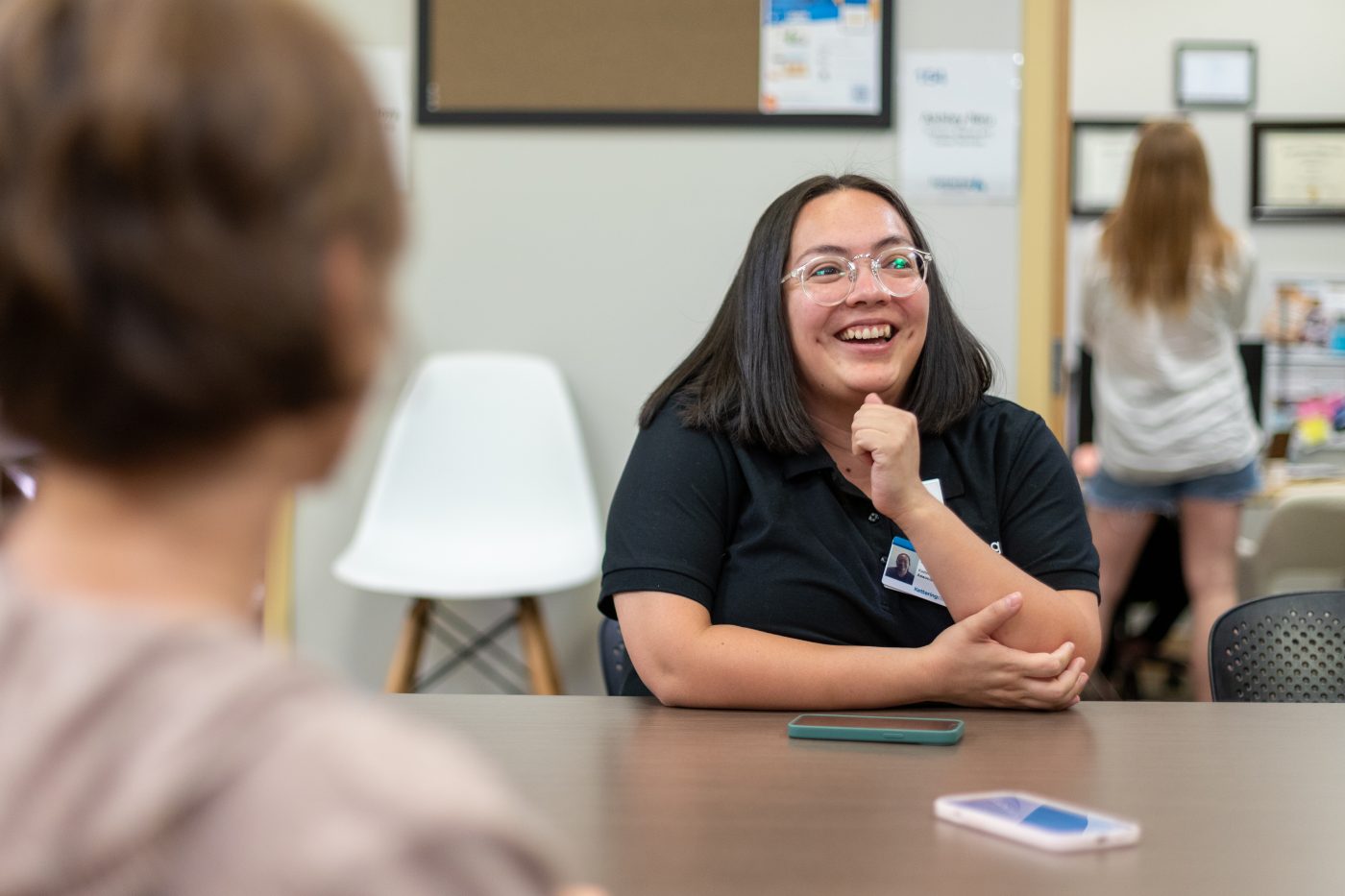
She says, “Students come to me for help figuring out their faith. Sometimes they are coming to college with the rules and expectations they were raised with, and now they are trying to figure out who they are.” It is an internal struggle that can feel heavy when paired with focusing on academic success.
Judith says an important aspect of understanding and making peace with spiritual health is to embrace that it can be a lifelong process, and we are forever changing. The goal is not to have all the answers but to be open to the discussion. She says, “I try to meet students where they are and ask them what they are feeling right now.” She also reminds our students of all walks of faith that they’re not alone and the questions they have don’t have to be an added stress but rather a part of growth.
She adds a significant element in relieving stress is moving our bodies. She has started to incorporate volleyball games before Collectives, the Friday evening prayer gatherings. She says, “It’s not just about taking care of the soul; it’s about taking care of your body. Being outside, moving around, and playing with others helps our mental health.”
Everyday Action to Maintain Mental Health
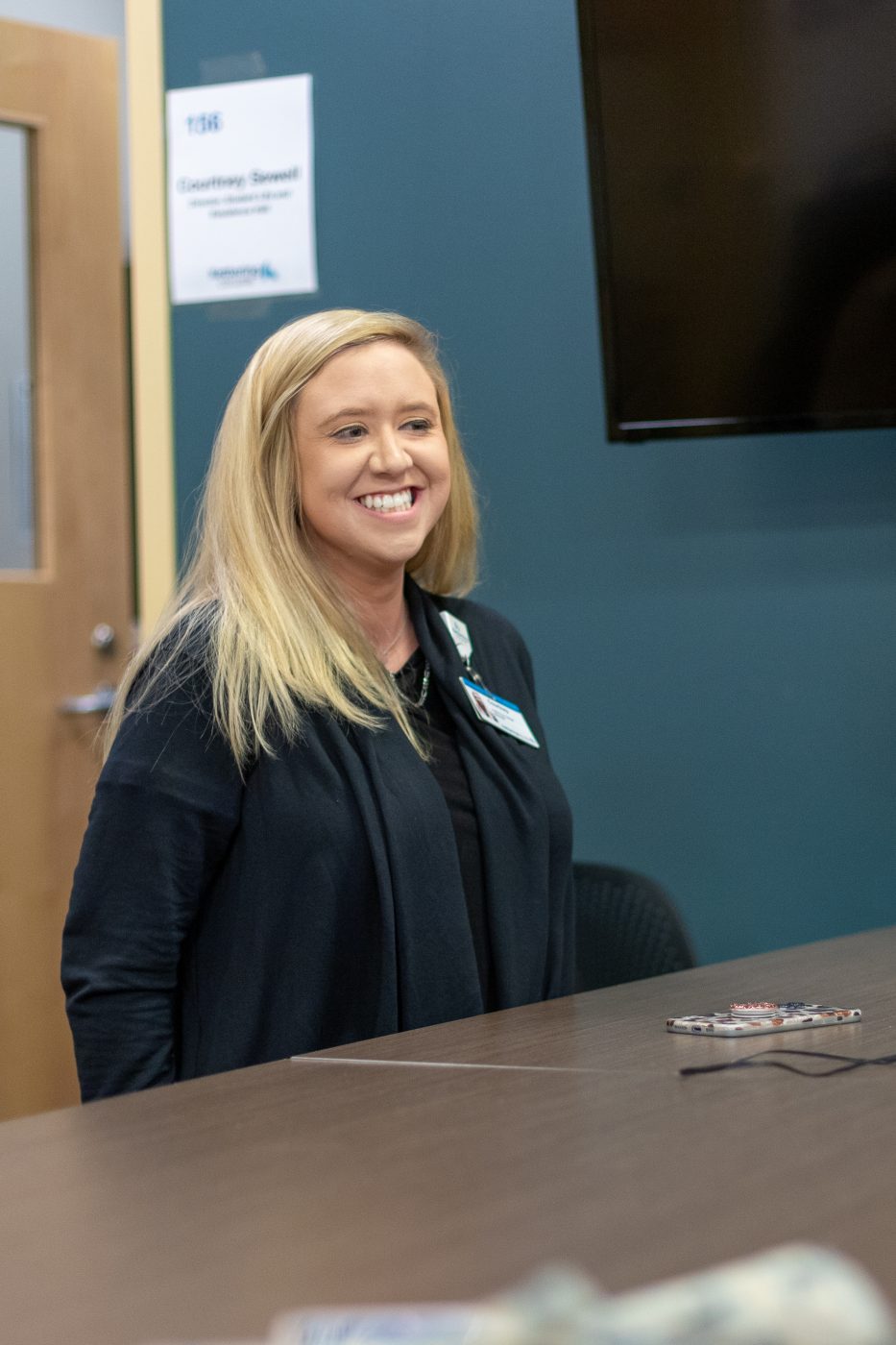
In addition to taking advantage of our Virtual Care Group and Mental Health Emergency Grant, it’s important to note caring for our mental health is an everyday venture. We don’t go to the gym one time and expect to be strong. It’s a routine we continue to maintain health. The same can be said for mental health—it is an ongoing daily practice to nurture our minds.
Courtney Sewell, Student Life director, has noticed how it’s the small daily things we implement on campus that help remind students they’re not alone and how important it is to carve out time to enjoy peaceful moments.
She has partnered with a local pet therapy group that brings a dog and miniature horse to campus during exam weeks. She says, “This is a little thing, but it’s a big thing for our students.” Students give her feedback on what a great stress reliever it is to walk onto campus and be greeted by animals to help get them out of their heads and focused on the simple, joyful act of loving an animal.
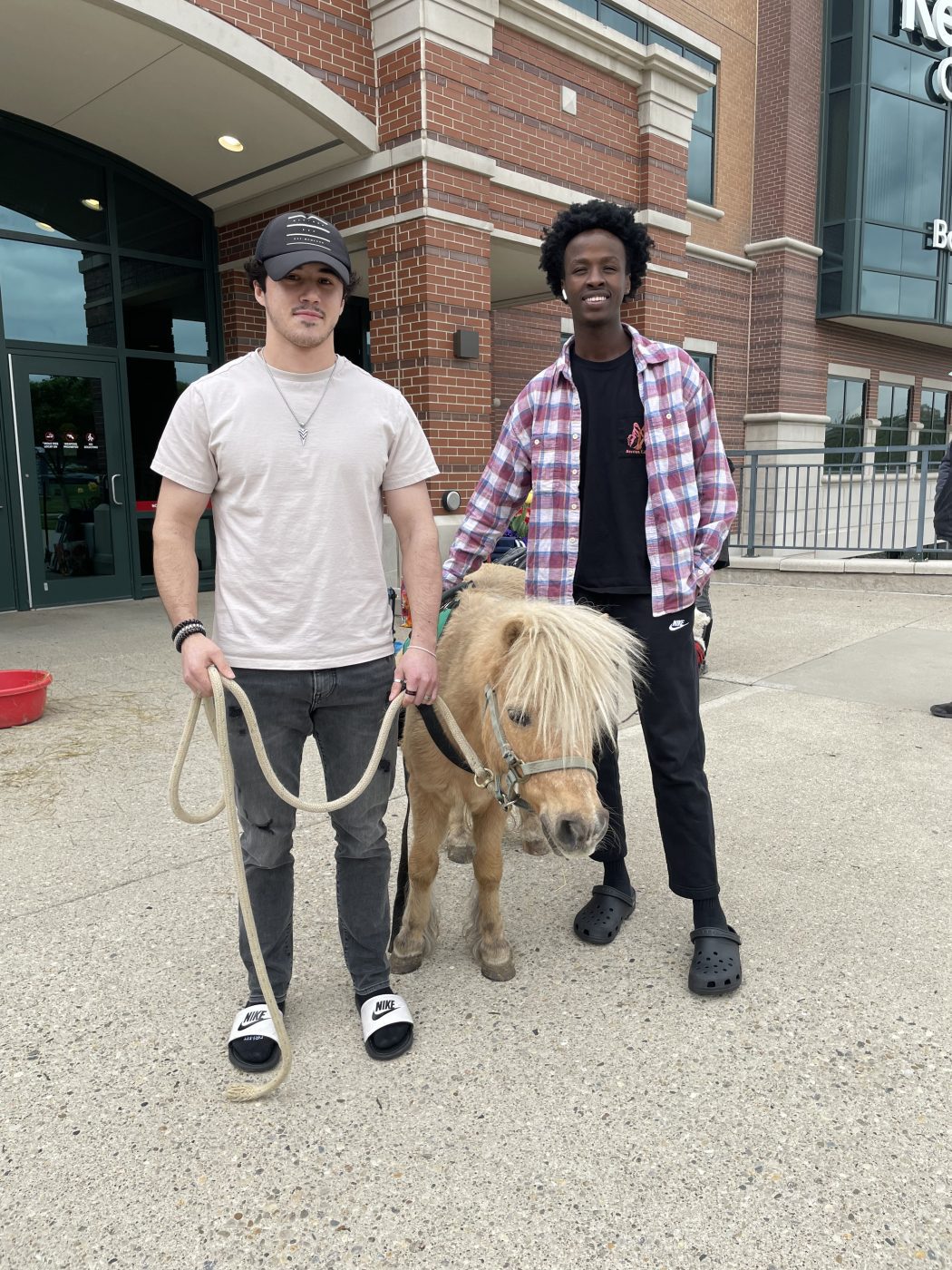
Ben notes the goal of Kettering College faculty and staff is to bring small moments like these to students every day during students’ breaks. He says, “Something as small as a cup of coffee and a place to hang out with friends helps create community. This is what student life looks like here, and we present it in a way that works for our busy students to serve them as a whole person and to fit wellness into their day.”
Mental Health for Healthcare Providers
A crucial aspect of mental health to acknowledge specific to Kettering College students is that a healthcare career can present additional gravity that can confront students’ faith and mental health. Ben notes students are learning to be prepared to witness the passing of a patient. To better assist with this reality that comes with answering the call to a career in healthcare, Judith has been shadowing chaplains at Kettering Health to better understand the stress our students are facing as they serve patients in their clinical rotations.
Ben says, “It’s about breaking down barriers and understanding there are so many highs here, but the lows can be extremely low, and those times can shake students to their core.” As Judith expands her scope to see what the students are seeing, the hope is students will trust her as someone who can empathize and not simply sympathize.
Takeaways
Caring for our mental health is a necessary part of academic, personal, spiritual, and physical health. The goal at Kettering College is to bring the conversation further into the spotlight to create a space where asking for help to manage our mental health is as easy as asking where the coffee is.
This is possible if we are aware of our resources, begin to utilize them, and continue the work to build deep community with each other. Caring for our mental health means better managing our time and expectations, as well as taking moments each day to move, get into nature, and enjoy the small moments of peace that are tucked into a busy schedule.
This needs to be a daily practice and one students, faculty, and staff focus on as strongly as academic success, since one cannot fully exist without the other.
Print This Page